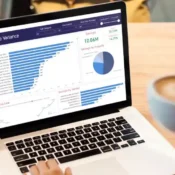
Importance of Inventory Management ERP Systems for UAE Trading Firms
Managing inventory effectively is one of the biggest challenges for trading firms in the UAE. Overstocking, stockouts, and mismanaged warehouses can directly affect profits and customer satisfaction. This is why Inventory Management ERP Systems UAE are becoming essential tools for modern businesses. Cloud-based ERP solutions like Light Cloud ERP simplify inventory tracking, automate stock processes, and provide real-time insights to help trading firms stay organized and efficient. With the right system, companies can reduce errors, save time, and focus on growing their business rather than juggling manual spreadsheets.
What is an Inventory Management ERP System?
An inventory management ERP system is a software tool that centralizes all inventory operations. It tracks stock levels, manages warehouse activities, and provides analytics for smarter decision-making. For UAE trading firms, such systems are critical because they allow accurate monitoring of goods across multiple locations and currencies. Using Light Cloud ERP, businesses can automate tasks like stock updates, order tracking, and supplier management. This reduces manual errors and ensures inventory is always up-to-date, giving managers a clear view of their resources.How Inventory Management ERP Helps UAE Trading Firms
Automating Inventory Processes
ERP systems automate repetitive tasks, such as recording incoming shipments, tracking stock movements, and updating inventory levels. This automation saves time for warehouse teams and reduces errors caused by manual entry. Automation also helps businesses maintain accurate inventory records, making financial reporting and auditing easier.Improving Stock Accuracy
Maintaining accurate stock records is essential for trading firms. ERP systems like Light Cloud ERP provide real-time updates, which help prevent overstocking or stockouts, ensuring orders are fulfilled on time and customers stay satisfied. Accurate stock tracking also allows better forecasting, so companies can predict demand and plan purchases more efficiently.Streamlining Warehouse Operations
Efficient warehouse management is key for UAE trading firms. Inventory Management ERP systems allow businesses to manage multiple warehouses, optimize storage space, and improve pick-and-pack processes, all from a single system. This reduces delays, ensures smoother logistics, and improves overall operational efficiency.Key Features of Inventory Management ERP Systems
- Real-Time Inventory Tracking: Monitor stock levels, incoming and outgoing shipments instantly.
- Automated Reordering: Get notifications when stock runs low to avoid shortages.
- Inventory Reporting and Analytics: Generate detailed reports to make informed purchasing and sales decisions.
- Supplier and Purchase Management: Manage supplier data and automate purchase orders efficiently.
- Integration with Accounting: Connect inventory operations with financial records for better control.
Benefits for UAE Trading Firms
Implementing an inventory management ERP system brings several advantages:- Efficiency: Reduce time spent on manual inventory tasks and minimize human errors.
- Cost Savings: Avoid overstocking and reduce losses due to expired or obsolete items.
- Better Decision-Making: Real-time data helps managers plan purchases, sales, and warehouse operations effectively.
- Improved Customer Satisfaction: Ensure product availability and timely delivery for your clients.
Advanced Features of Modern ERP Systems
Modern inventory management ERPs offer additional features that go beyond basic stock tracking. These include:Multi-Location Management
Trading firms often operate multiple warehouses or stores. ERP systems track inventory across all locations, ensuring visibility and control at every level.Batch and Expiry Tracking
For businesses dealing with perishable goods, batch tracking and expiry management are crucial. ERP automatically flags products nearing expiry, helping reduce waste.Barcode and QR Code Integration
Integrating barcodes or QR codes speeds up inventory processes. Products can be scanned for faster check-ins, check-outs, and stock audits.Supplier Performance Monitoring
ERPs can track supplier reliability, delivery times, and order accuracy. This allows businesses to make informed sourcing decisions and negotiate better terms.How ERP Supports Trading Business Growth in UAE
A robust ERP system doesn’t just manage inventory: it also supports business expansion. By automating core processes and providing real-time insights, trading firms can:- Identify high-demand products and plan stock accordingly.
- Reduce operational costs and improve profit margins.
- Scale operations seamlessly across multiple locations.
- Enhance customer service with accurate product availability information.
Comparison: ERP vs Traditional Inventory Methods
[wpdatatable id=2]This comparison highlights how adopting ERP transforms inventory operations, making them faster, more accurate, and more cost-effective.Common Challenges UAE Firms Face in Inventory Management
Even experienced trading firms face challenges like overstocking, stockouts, inaccurate reporting, and difficulty tracking shipments across multiple locations. Manual processes often lead to mistakes and delayed decision-making. Implementing an inventory management ERP system helps overcome these hurdles by providing centralized control, automation, and real-time data visibility.How Light Cloud ERP Solves These Challenges
Light Cloud ERP addresses these challenges with features such as real-time stock updates, automated reorder alerts, detailed analytics, and multi-location management. It reduces manual work, minimizes errors, and ensures that trading firms can maintain optimal stock levels at all times. By integrating inventory and accounting, the system provides a holistic view of business operations, improving both efficiency and profitability.Conclusion
For trading firms in the UAE, managing inventory manually can be time-consuming, error-prone, and costly. Inventory Management ERP Systems UAE, like Light Cloud ERP, provide real-time tracking, automated processes, and actionable insights to improve efficiency and profitability. They streamline operations, reduce errors, and empower businesses to grow confidently in a competitive market. Ready to take control of your inventory and streamline your operations? Contact Light Cloud ERP today to simplify your inventory management and focus on growing your business.Frequently Asked Questions
What is an inventory management ERP system?
It is software that centralizes inventory tracking, warehouse management, and reporting to improve efficiency and accuracy.How does ERP improve inventory control for UAE trading firms?
ERP provides real-time stock updates, automated reordering, and analytics to prevent stockouts and overstocking.Can ERP manage multiple warehouses?
Yes, cloud-based systems like Light Cloud ERP allow businesses to track inventory across multiple locations seamlessly.Does ERP integrate with accounting?
Yes, it connects inventory operations with financial records, ensuring accurate profit calculations and reporting.Is ERP suitable for small trading businesses?
Absolutely. Even small firms benefit from streamlined inventory management and reduced manual work.Can ERP track batch numbers and expiry dates?
Yes, modern ERP systems like Light Cloud ERP include batch and expiry tracking for better inventory control.How does ERP help reduce operational costs?
By automating processes, minimizing errors, and optimizing stock levels, ERP lowers costs related to overstocking, waste, and labor.All Categories
Recent Posts
connect-team0 Comments
Role of Purchasing in Effective Supply Chain Management
connect-team0 Comments
What is the Difference Between Purchasing and Supply Management?
connect-team0 Comments
Top Functions Every Purchasing Manager Should Know
Tags
Accounting ERP Solutions
Best Cloud ERP Software for Businesses
Business Automation Tools
Business Operations
Client Management System
Closing deals with CRM
Cloud-Based ERP Solutions 2025
Cloud ERP Management System Pakistan
Cloud ERP Software UAE
Cloud ERP Software UAE: Streamline Your Business Operations
CRM Customer Portal
CRM Increase Sales
CRM pipeline management
CRM Portal Benefits
CRM sales automation
Currency Exchange ERP
Customer relationship management for sales growth
Customer Support Portal
E-Invoicing Pakistan
ERP for Cross-Border Transactions
ERP Management System for Cost Savings
FBR Digital Invoicing
FBR Invoicing System 2025
Global Business ERP
Health
How Accounting ERP Solutions Ensure VAT Compliance in UAE
Insurance
International Accounting Software
Lead tracking with CRM
Life
Multi-Currency ERP
Policy
POS Integration FBR
PRAL Integration
procurement and supply chain management
procurement process
Protect
purchasing in supply chain
purchasing strategies
role of purchasing
Safe
Sales Tax Invoicing Pakistan
Small Business Tax Pakistan
VAT Compliance in UAE





